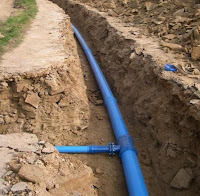Megawatt hours and their smaller offspring

As I shaved I was listening to the radio, to the part they call a tertulia, that's the bit where pundits, usually journalists, talk about the latest news. They were talking about inflation and about electric prices. They had some boffin who knew all about the electric market. One little tidbit he dropped in at the end of his section was that every Spanish electric bill has a QR code which leads to a webpage maintained by some sort of Government quango, the "National Energy Commission". By using that code/website, you get a direct comparison between your last bill and the market in general. To explain it all properly would take pages and pages. It's quite complicated stuff, so I've kept this as short as my ponderous writing style will allow. The Spanish electric market has two sorts of contracts for we household users. One is in the controlled market. The other is in the free market. The controlled price varies from hour to hour. It's an almost incomprehensibl...

















